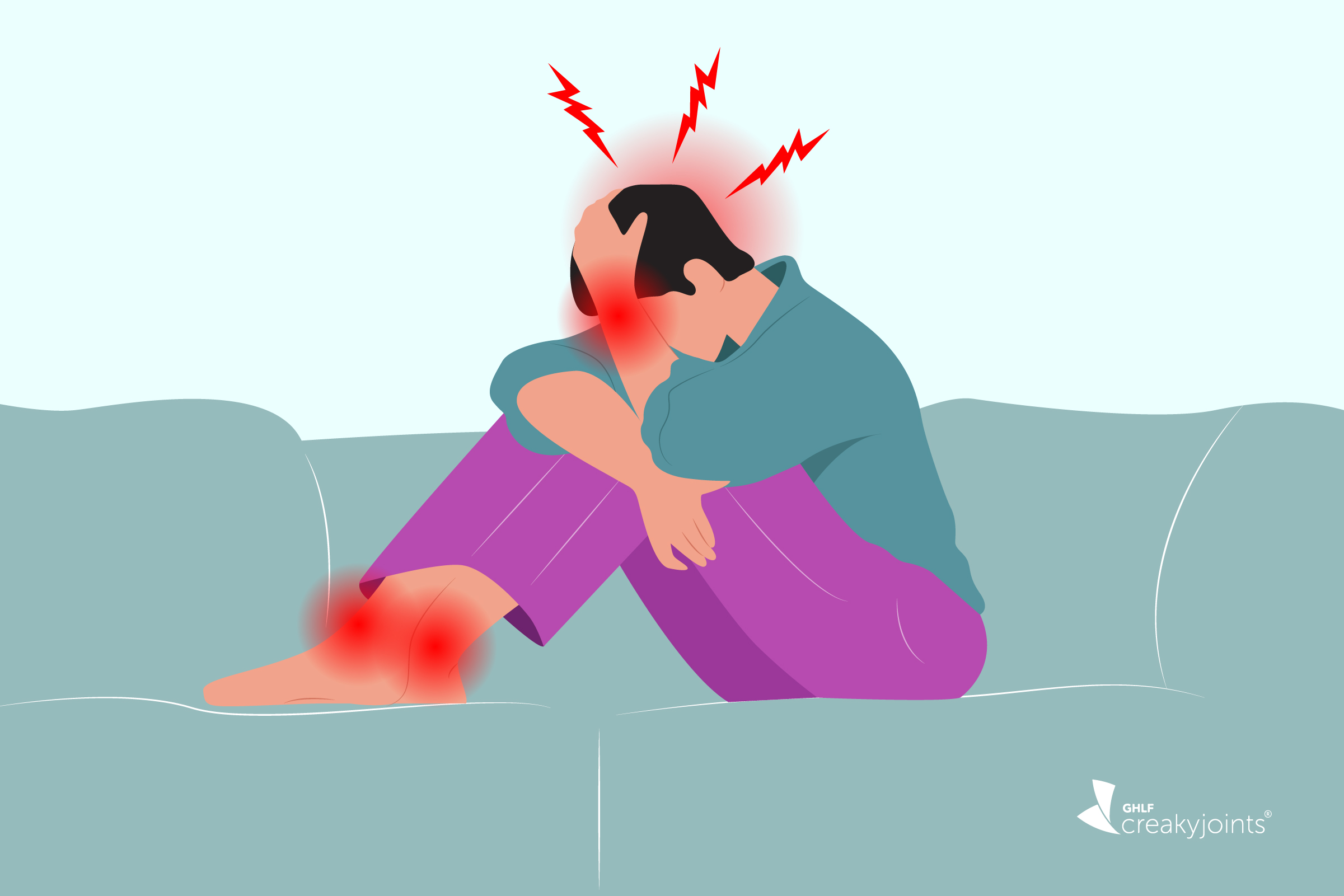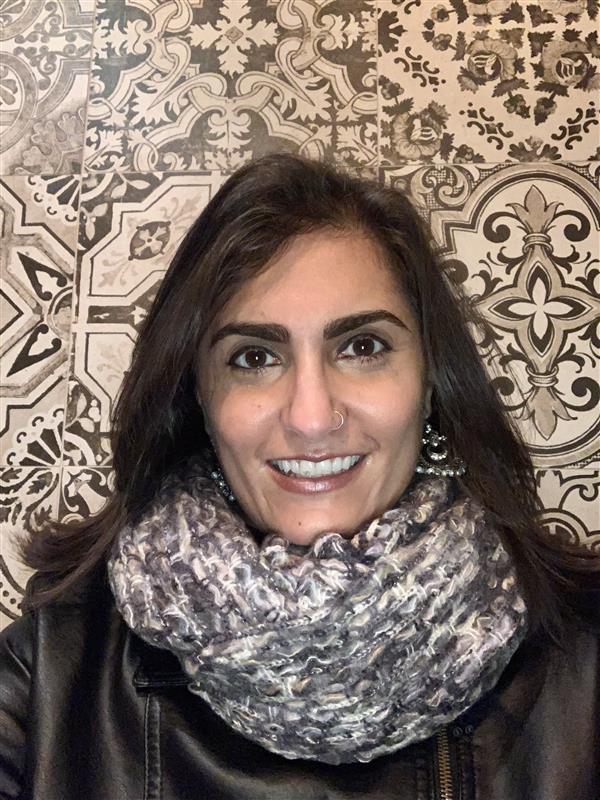“I was a totally different person before [experiencing fistulizing Crohn's. It taught me meaning and purpose. It gave me the desire to move the needle on how people are treated in the health care system.”
Nutritional Strategies for IBD: Expert Advice from Around the World
Nutritional Strategies for IBD: Expert Advice from Around the World
In honor of World IBD Day, dietitians from three different continents share tips on managing diet and inflammatory bowel disease (IBD).
May 14, 2024
GHLF STAFF

In celebration of World IBD Day, we’ve connected with leading dietitians from across the globe — Ginger Hultin, MS, RDN, CSO, from the USA, Maki Nakahigashi, RD, from Japan, and Monica Kubizniak, BSpSc, BSc, M.Dietetics, from Australia — to discuss how inflammatory bowel disease (IBD) impacts nutrition. Our experts share some universal messaging about managing IBD with diet, including the importance of adapting your diet during flare-ups and remission periods and working with your doctor to monitor any nutritional deficiencies.
Join us as we delve into the importance of nutrition in IBD management and discover tips that transcend borders, helping you or a loved one with IBD to feel your best.
Q: How does IBD affect nutritional needs and what misconceptions exist about diet and IBD?
Ginger Hultin: “IBD can be really confusing because it often comes in flares. What you can eat when you’re in a flare — think low fiber [versus] an anti-inflammatory diet that is high in fiber and full of nuts, seed, whole grains, fruits, veggies, beans, and lentils. Calming inflammation in the gut is different than calming systemic [body-wide] inflammation when we’re trying to target type II diabetes or cardiovascular disease.”
Maki Nakahigashi: “Because of [symptoms like] persistent diarrhea and bloody stools, patients are often malnourished. Depending on the treatment, they may need to fast or receive intravenous nutrition, which can lead to a lack of all micronutrients. In Japan, many people still restrict fiber, fat, dairy products containing lactose, during the remission period, as instructed back in the days.”
Monica Kubizniak: “How IBD affects the nutritional need of a patient is quite individual and will depend on their symptoms, severity of their symptoms, and if they are in remission or having a flare. For many of my clients, their condition is well-managed and therefore we can focus on day-to-day eating, prevention of flare ups, and learn about balanced eating and the anti-inflammatory diet.
If a client is not well during higher inflammation, and therefore not eating enough or not absorbing adequate nutrients, they may lose weight without trying. This will require an increase in calorie and protein intake to maintain their body weight. When eating fat, try to focus on healthy fats in the diet to increase calorie intake. This may not always be possible depending on the age, severity of the disease, and weight loss.”
Q: Given that IBD often affects nutrient absorption, what are the most important nutrients that patients should focus on, and how can they ensure they are getting enough?
GH: “Your medical team should be assessing blood markers of nutrition often and going over them thoroughly with you, adjusting supplements as needed. Because bone density can also be affected, many of my clients are getting bone density screening earlier; I help them advocate for that if it’s not being offered. From there, we can look at bone-building nutrients together such as calcium, vitamin D, and magnesium.”
MK: “It is important to have regular blood tests to check iron, folate, B12, magnesium, zinc, and vitamin D levels. If you have had extended flares and/or surgery, checking bone mineral density is also essential to track bone health and any signs of osteopenia or osteoporosis.
Eating a well-balanced diet based on vegetables, fruit, lean protein (meat, chicken, and fish) and whole grains will assist individuals in meeting nutritional requirements. If you can manage eating some lentils, legumes, nuts, and seeds these also contribute to important nutrient intake. Seek specialized advice if you have intolerances, allergies, or have had (or are [at] risk of) a bowel obstruction.”
MN: “It is important to consciously ingest protein, B vitamins, and iron, as many patients tend to be deficient in these items.”
Q: Are there any specific diets, recipes, or changes that can be made to help manage IBD symptoms?
GH: “I often suggest high-protein foods that are anti-inflammatory and low in fiber. I like to focus on eggs, fish/seafood, and tofu for many of my patients. Getting enough protein can be a challenge and many of these types of foods are also going to help my clients meet their needs.”
MN: “It is important to communicate closely with a dietitian to discuss diet, as the nutrients required and their amounts may differ between the remission and active phases, the site of inflammation, and whether surgery has been performed. As for recipes, it is important to incorporate a variety of ingredients, but also to soften or grind dietary fiber, and to create recipes and flavors that are tasty with less red meat.”
MK: Overall, most of my clients are keen to trial an anti-inflammatory diet to see if it assists them with managing IBD, prevent flare-ups, and contribute to other aspects of their health (such as cholesterol, hypertension). Clients may respond to lactose-free dairy, especially when having a flare, and therefore this is also considered when treating IBD.
From a recipe point of view, there are now plentiful resources for clients from individual health practitioners, including Anti-inflammatory Eating: Recipes from your Dietitian’s Kitchen.
I am also keen on recommending lifestyle strategies, including exercise (within each person’s capabilities and consulting with an exercise physiologist for advice), meditation, managing stress, adequate sleep, hydration, and spending time with family and friends.”
Q: What dietary advice do you have for managing flare-ups? Are there specific foods that should be avoided or included during these times?
GH: “We need to meet nutrient needs in a way that helps soothe the gut. That often looks like a lower-fiber diet. I utilize recipes like soups or smoothies to take some of the digestive work off the stomach and intestines.”
MK: “It is very individual. A client may need to significantly reduce their fiber intake (which usually is recommended to be about 25 grams per day). If you’re able to tolerate lactose when IBD is not active, it may need to be avoided during a flare. Any food that makes someone worse should be avoided during a flare (e.g. skin on fruit, seeds, nuts). Include as many of your regular foods as possible. Eat smaller but more frequent meals and snacks if your appetite is low to aim for adequate calorie intake.
MN: “At the time of flare-up, it is recommended that the gastrointestinal tract be rested with fasting plus intravenous nutrition, followed by a gradual resumption of eating. In such cases, it is still important to adjust fat and fiber to avoid straining the digestive tract. Adjusting the frequency of meals at home may also be effective.”
Q: How important is it for patients to track their diet?
GH: “We have to be really careful with this one; I’ll always ask my clients about their background (if any) with tracking. Being too specific can be triggering to some people, especially if there’s a history of disordered eating. However, it can also be incredibly helpful. I have a lot of different ways to support my clients in their tracking from running all the calculations for them on my end to having them track in an app that I can connect to and follow along.”
MN: “There are many things to learn from the food record. For example, the relationship between diet and symptoms, if inflammation occurs when eating certain foods. Not only is this useful for self-management, but it can also be shared with health care providers. This is especially helpful in the early stages of onset or when symptoms are worsening.”
MK: “Tracking may be important if there is a particular recommendation a client is striving for and it is helpful to know where they are with protein, calorie, calcium, and iron intake or lower or higher fiber. If you are seeing a dietitian, a simple food diary with an indication of portions is enough for the dietitian to work out what you may need to eat more or less of.”
Be a More Proactive Patient with PatientSpot
PatientSpot (formerly ArthritisPower) is a patient-led, patient-centered research registry for people living with chronic conditions. You can participate in voluntary research studies about your health conditions and use the app to track your symptoms, disease activity, and medications — and share with your doctor. Learn more and sign up here.
This article was created in collaboration with the Japanese IBD patient community, GooTe.
SUBSCRIBE TO GHLF
RELATED POST AND PAGES
_
Was this article helpful?
YesNo







